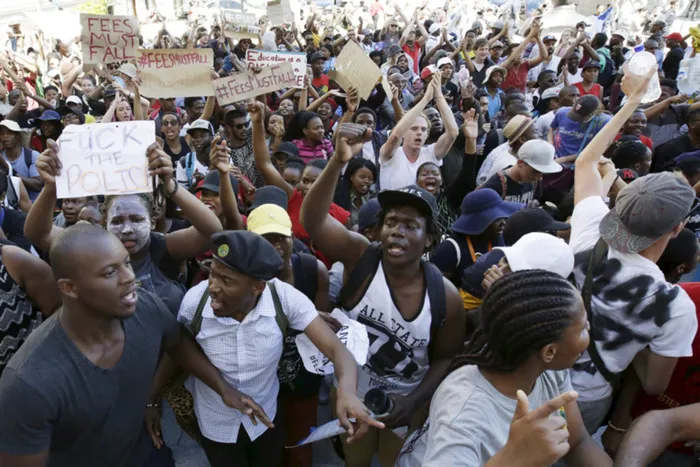Treasury has plan for education crisis

Students protest over planned increases in fees outside Parliament in Cape Town on October 21, 2015. Picture: Mark Wessels Students protest over planned increases in fees outside Parliament in Cape Town on October 21, 2015. Picture: Mark Wessels
Johannesburg - The Treasury was involved in a two-pronged strategy to deal with the higher education funding crisis, Finance Minister Nhlanhla Nene said at a media conference prior to delivering his mini budget yesterday.
Nene said the first process was looking at a short-term intervention and the second was investigating how to deal with the funding of university education in the long term.
However, Nene did not indicate how much extra funding the government would provide so that universities could cap their fee increases next year at a 6 percent hike of an increase of as much as 10.5 percent.
“Challenges still remain as with education in general. We need to find a solution to this crisis,” he said.
“We have been reminded this past week of the challenges of financing the expansion of further education and university opportunities.
“It needs to be said that the disruption of learning is not constructive. But (education) minister (Blade) Nzimande has rightly indicated the need to strengthen student financing further, and to find solutions where current arrangements are inadequate.”
Nene said with 15 percent of the budget going to public education, there was universal access to basic education.
“Enrolments to early childhood development and post-school education continue to expand,” Nene said.
“Our education and training capacity is not enough: we have to invest in quality improvements and meet new skills requirements.”
Nene announced that the government would spend R213.9 billion, 15.5 percent of total planned expenditure, on basic education in the year to February 2016.
In the fiscal year to February 2016 government spending on basic education was projected to climb to R270bn and the government was planning to spend R63.7bn this year on post-school education and training or 4.6 percent of total expenditure in the year to February 2016.
Expenditure on post-school education and training was set to rise on average by 6.3 percent a year over the four years to February 2019.
“To enhance basic education, provision for learner and teacher support materials is prioritised, including workbooks to more than 10 million pupils each year.
“Basic education allocations over the medium-term expenditure framework increase by 8.2 percent a year.
“Funds are allocated to enable early childhood development programmes to enroll a further 127 000 learners,” Nene said.
“Targeted support programmes will help teachers improve instruction in maths, science and technology through an intensive in service training programme,” Nene added.
BUSINESS REPORT